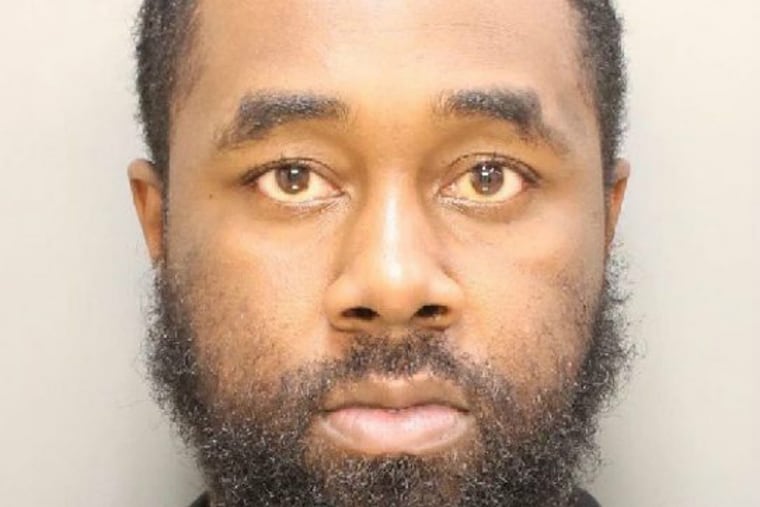Unusual twist as key witness testifies on camera in killing of popular S. Philly grocer
The trial for accused killer Maurice Green is at least several months away, but a key witness testified about his supposed motive into a video camera inside a Center City courtroom Thursday.

The man charged with fatally shooting popular 81-year-old South Philadelphia corner store owner Marie Buck last Christmas Eve isn't scheduled to go on trial until April.
But in an unusual proceeding Thursday in a largely empty courtroom in the Criminal Justice Center, a key witness took the stand and provided emotional testimony about the accused killer's supposed motives — in front of a video camera.
Angela White, 24, of South Philadelphia, addressed questions from prosecutors and defense attorneys about Maurice Green's alleged actions, an arrangement the District Attorney's Office had requested fearing that White — an admitted heroin and crack addict who said she bought drugs from Green — might fail to show up at trial.
And in more than three hours of testimony — a recording of which may be shown to a jury in four months — White described how the drug addiction she shared with Buck's grandson may have unwittingly led to the shocking killing of Buck, who endeared herself to the neighborhood over four decades while running her eponymous grocery at Sixth and Titan Streets.
At issue, White said, were heroin, a debt, and a gold chain.
Under questioning from Assistant District Attorney Jude Conroy, White said that she had dated Buck's grandson, Robert, for six years, and that while they were in the throes of addiction in the summer of 2016, they conspired to steal a $6,000 chain from Green's apartment on the 5400 block of Berks Street.
Green was their drug dealer, White said, but she also hooked up with him on the side. After stealing the necklace and pawning it for a tenth of its value on South Street, White said, she and Robert Buck bought $200 worth of heroin, then spent the week getting high in a South Jersey motel while dodging repeated calls from Green.
"I thought if I didn't answer, [the situation] would just go away," White said.
But White said she continued to encounter Green for several months as she bought drugs from his crew in South Philadelphia. And during one drug deal, White said, Green asked where Robert Buck was, then said: "I'm still going to get that m—-f—–."
That alleged quote gets at the heart of the motive prosecutors are likely to present during trial — that Green busted into Marie Buck's grocery store to resolve the debt from the stolen chain, but sprayed her with bullets when her grandson wasn't inside. Other witnesses, including Robert Buck, provided a similar account at Green's preliminary hearing in March.
Defense attorney Robert Gamburg, however, fought back against that narrative Thursday by picking away at inconsistencies in White's various statements to police and prosecutors, calling her a "junkie" and a "liar" who would say anything to help her own troubled legal situation.
He pointed out that White had been picked up on a bench warrant in September but was being held until she could testify against Green — saying her freedom depended on her testimony, an assertion White rejected.
And Gamburg challenged White's identification of Green in a surveillance video recorded minutes before the crime and several blocks away, pushing the idea that perhaps she was mistaking Green for one of his fellow drug dealers.
For his part, Green, 31, of Overbrook, was animated during the hearing, shaking his head and conferring frequently with Gamburg. And while sparks flew between supporters of the victim and the accused at the preliminary hearing, the gallery was nearly empty Thursday.
That may be because the testimony could prove somewhat moot.
Common Pleas Judge Sandy L.V. Byrd released White from custody, but issued her a subpoena to return for Green's trial, promising further consequences if she doesn't.
Both Conroy and Gamburg declined to comment after the hearing, saying that doing so would essentially violate the convention of refraining from speaking publicly during trial — even if the rest of that trial was still, at best, months away.